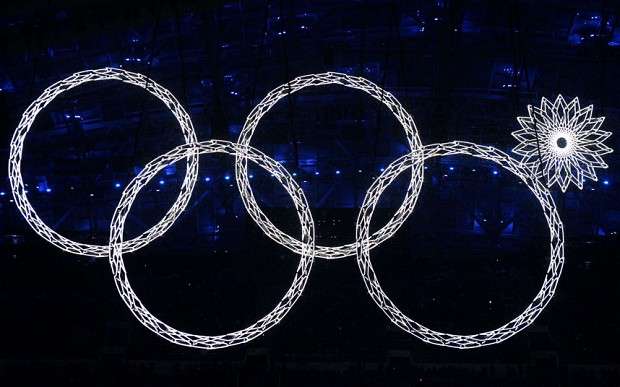The Olympic opening ceremony is a moment of global attention and high expectations. This pressure came to a head during the ceremony for this year’s Sochi Winter Games with the event’s centrepiece—five flowers which blossomed into the Olympics’ iconic interlocking rings. However, the fifth ring failed to expand with the others. Viewers around the world witnessed the malfunction, but on Russian television, footage from a taped rehearsal was spliced in, creating the appearance of a flawless performance. This ‘fix’ spawned debate as to whether such an alteration was ethical, and highlighted the difficulty of distinguishing between entertainment and news.
Russia has had numerous issues with its hosting, with shocking charges of corruption and lack of preparation. It makes sense to want to avoid further embarrassment and disprove the claims of poor planning. But even if that is the case, is it really ethical to present a falsity as truth? While there is some value to this kind of symbolism, pure deception for the sake of appearances is something else.
Officials at the Russian network defended the splicing, claiming they were preserving the integrity of the Olympic rings and what they symbolized. In the network’s eyes, what they were doing was permissible since the opening ceremony is a performance for the world. They consider it to be entertainment, not news, and have no problem adjusting the content accordingly.
For the most part, the matter boils down to the value of authenticity in news and entertainment. If the opening ceremonies are considered entertainment, it should be fine to alter the showing for a more pleasurable viewing, and to better convey the artistic intent. If it is news, however, altering it is dishonest and unethical.
It is a slippery slope to make such modifications, however, as the opening ceremonies are presented as a factual event. Altering the presentation in the way that the Russian television station did is perpetrating a falsehood on the audience. Even though the opening ceremony is largely for entertainment, it is also reality; not treating it as such allows for other parts of reality to be altered. Even though the Olympic rings don’t seem like a big deal unto themselves, the willingness of a broadcaster to make such an editorial decision calls into question the integrity of any live coverage. Blurring the lines between reality and fiction may be a good narrative technique, but it does not constitute any sort of ethical journalism.









